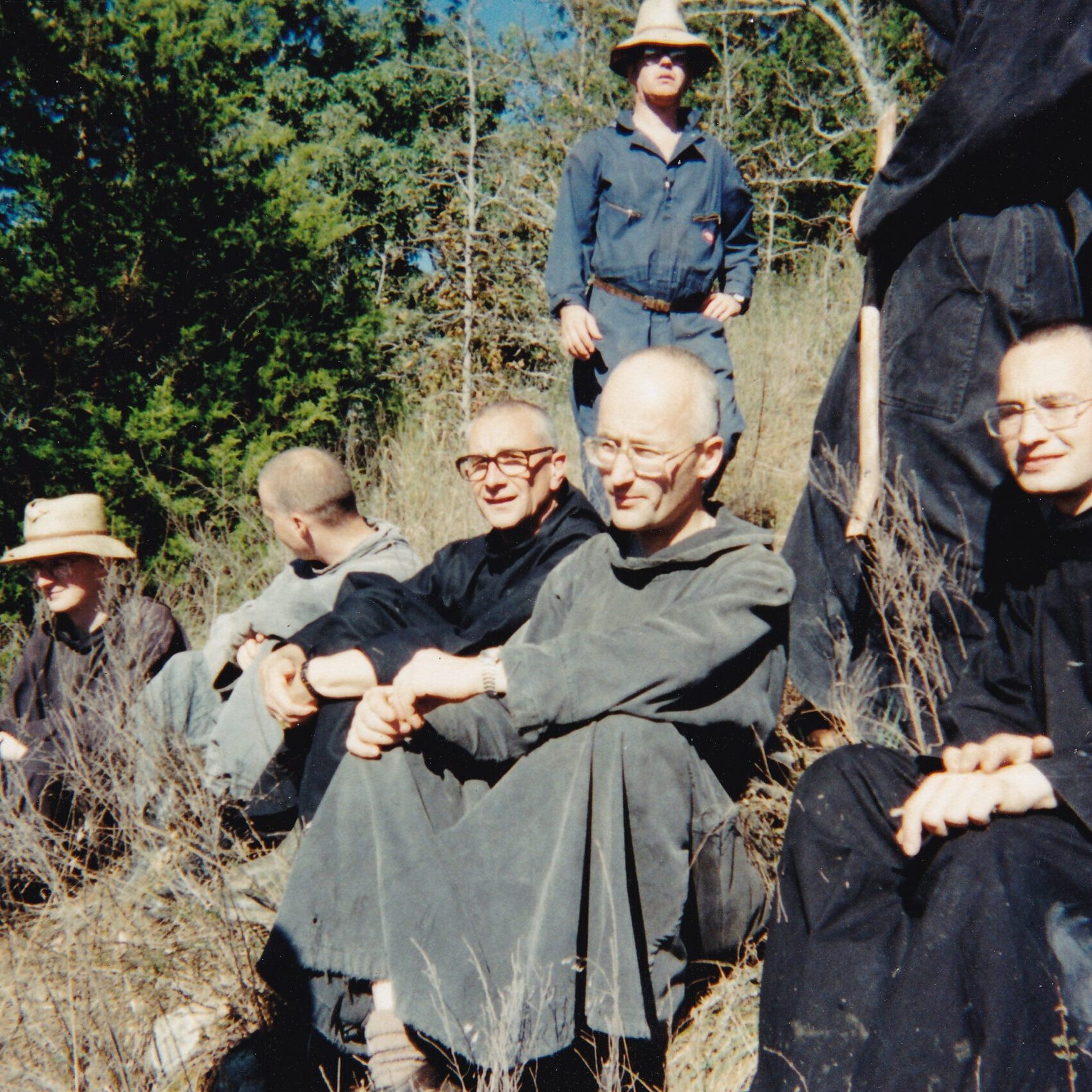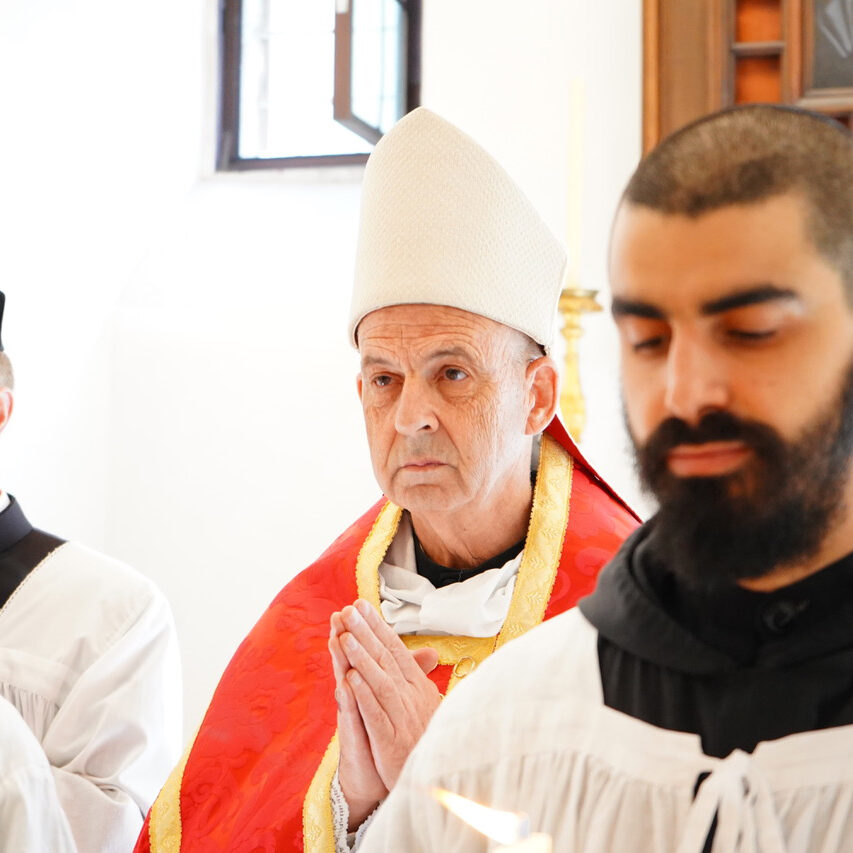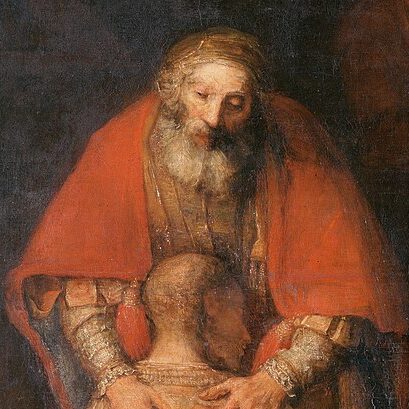My heart leaps up when I behold
A rainbow in the sky …
— William Wordsworth
Dear Friend of Clear Creek Abbey,
If there is a biblical image that speaks to all mankind—in all times and places—it is surely that of the rainbow. “And God said: This is the sign of the covenant which I will give between me and you, and to every living soul that is with you, for perpetual generations. I will set my bow in the clouds, and it shall be the sign of a covenant between me, and between the earth” (Gen. 9:12-13). This was the great sign of God’s mercy, the sign that there would be no more flood “to destroy all flesh” (9:15).
The rainbow likewise had a privileged place in Greek mythology and the philosophical tradition of Hellas. Iris, the rainbow, was said to be the daughter of Thaumas, the god whose name means wonder. “Wonder,” says Socrates in the Theaetetus, “is the only beginning of philosophy.” In his book Iris Exiled: A Synoptic History of Wonder, Professor Dennis Quinn of the Integrated Humanities Program at the University of Kansas, traces this philosophical tradition of wonder symbolized by the rainbow through Classical Antiquity, the Christian Era, the Enlightenment, and up until the Modern Age. In his foreword to the book, Father James Schall, S.J., states that Dennis Quinn, “…calls us out of our own darknesses to that amazement that begins with the things that are. What it is to be a human being includes, as Quinn intimates … the wonder that we are beings who can wonder.”
But now the rainbow has been stolen. Somehow this natural phenomenon, this wonderful sign in the heavens that lifts men’s souls up to higher realities, has been “co-opted” for political and sociological motives of a questionable sort. The natural spectrum of colors that the rainbow displays to our eyes has been put in the service of an ideology that no longer invites the human soul to wonder and to seek wisdom, but tends rather to impose upon the human race an agenda that promotes the self-interest of a powerful minority. Iris has not only been exiled, as Dennis Quinn thought, but also taken prisoner.
As Professor Anthony Esolen pointed out to his students at Providence College, the first and most fundamental diversity between us human beings on earth is the one established by God between man and woman. It is a beautiful and a formidable one. Like so many diversities and distinctions, this one does not fatally lead to strife and opposition but should produce harmony and union according to the plan of God. The work of necessary distinction is found on every level of life. On an intellectual level, we distinguish the parts of speech in order to combine them in sentences in order to say something. We distinguish the notes of the diatonic scale in music in order to blend them together in a beautiful melody. In sum, we “distinguish in order to unite,” to borrow an expression coined by the Catholic philosopher Jacques Maritain (in The Degrees of Knowledge).The real distinctions that produce diversity in Creation are, indeed, a wealth, a precious thing. How many diverse species of flowers are there? It all makes for an astonishing universe, a world inviting us to wonder under the splendid sign of the rainbow.
But the rainbow thieves have disturbed this order and confused the panorama with a false harmony that blurs the distinctions that would allow for true diversity. Between the masculine and the feminine, to take again this fundamental difference of the sexes, they would introduce an artificial palette of colors, of in-between shades. No wonder the institution of marriage is declining and that in some universities students need name tags in order to know which pronoun to use!
The monastic community of Clear Creek offers hospitality to men and women of all conditions, without distinction of race, nationality, or religious background. We seek to provide all with an experience of the fullness of the Catholic Christian faith, through the witness of our monastic life, underlining the true distinctions in the order of nature and grace that foster a deep faith. Saint Benedict bids us “honor all men” (Rule, Ch 4, n 8). Please continue to help us in this holy endeavor. You can always count on our prayers and sacrifices for you and your families.
+ br. Philip Anderson, abbot






